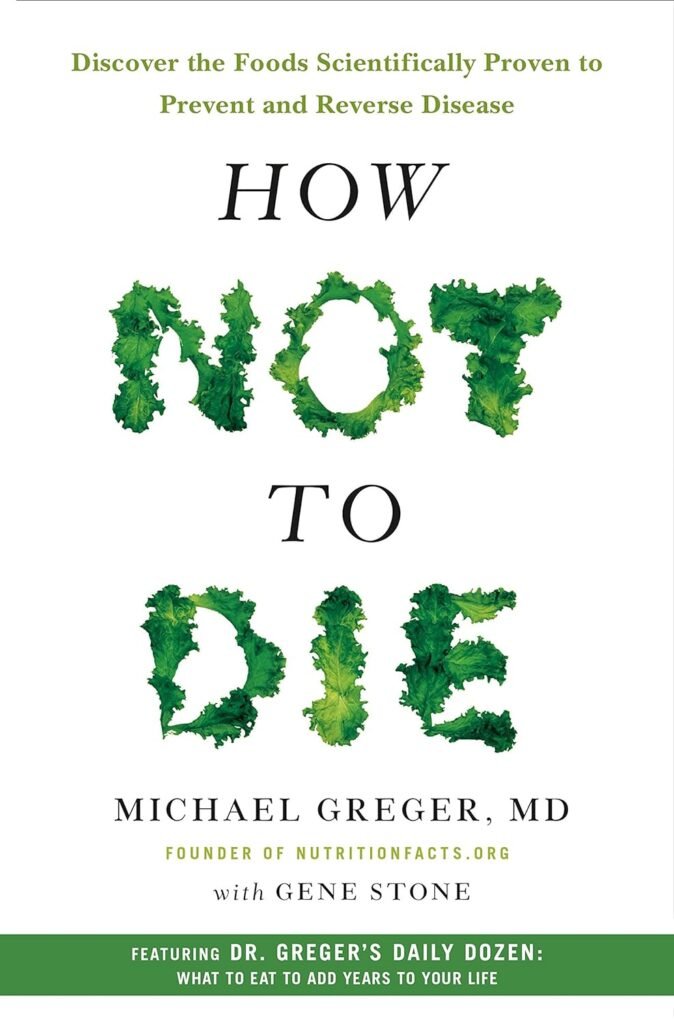
If you’re looking to take control of your health through nutrition and lifestyle changes, How Not to Die: Discover the Foods Scientifically Proven to Prevent and Reverse Disease by Dr. Michael Greger is a compelling resource. This New York Times bestseller dives deep into the science behind how your diet can prevent and even reverse some of the most common and deadly illnesses. Grounded in solid research, it offers practical advice that empowers readers to make informed decisions for a longer, healthier life.
Key Features
How Not to Die examines the fifteen leading causes of premature death in America—including heart disease, various cancers, diabetes, Parkinson’s, and high blood pressure—and details how specific nutritional and lifestyle choices affect these conditions. Unlike traditional medicine’s common focus on treating acute symptoms, Dr. Greger emphasizes prevention rooted in dietary habits.
One of the book’s standout features is Dr. Greger’s Daily Dozen checklist—twelve essential foods and habits to incorporate daily to optimize health. This includes foods such as flaxseed, soy, hibiscus tea, coffee, whole plant-based foods, and more. For example, if you have a family history of prostate cancer, adding flaxseed is recommended; hibiscus tea may aid those managing hypertension without the side effects of medication; coffee consumption can reduce liver inflammation; and embracing a whole-food, plant-based diet can halt and often reverse heart disease progression.
Unlock the Secrets to Healthy Living
The book is intensely research-based, drawing from peer-reviewed scientific studies to back each claim. It breaks down complex nutritional science into digestible and actionable advice. This blend of rigorous evidence and practical tips helps readers understand not just what to eat, but why these choices matter for longevity and chronic disease prevention.
Pros & Cons
Pros
- Well-Researched and Trustworthy: Customers consistently praise the thorough scientific foundation and reference to credible studies.
- Easy to Understand: Despite its scientific depth, many reviewers find the language accessible and clear, making complex concepts straightforward.
- Impact on Health: Numerous readers share positive experiences, including reduced joint inflammation, improved chronic condition management, and enhanced overall longevity.
- Practical Guidance: The Daily Dozen checklist and lifestyle tips provide an actionable framework that helps translate theory into everyday habits.
- Positive Influence on Mindset: The book encourages a proactive and hopeful approach toward health by emphasizing prevention over illness treatment.
Cons
- Repetitive Storytelling: Some readers feel the narrative is repetitious, potentially making the material feel redundant in places.
- Factual but Less Engaging for Some: While factual accuracy is appreciated, a few users find the writing style less captivating, affecting engagement during reading.
Who Is It For?
How Not to Die is ideally suited for anyone interested in improving their health through diet—particularly those with chronic illnesses or a family history of diseases such as cancer, heart disease, diabetes, and neurodegenerative conditions. Health-conscious individuals seeking scientifically validated guidance on plant-based nutrition will find this book rewarding. It is also valuable for healthcare professionals, caregivers, and anyone curious about the evidence linking diet and disease prevention.
Discover Disease-Fighting Foods
Whether you’re just starting your health journey or looking to deepen your understanding of nutritional science, Dr. Greger’s book offers evidence-based strategies to empower lasting change.
Final Thoughts
How Not to Die stands out as a comprehensive guide to understanding how diet influences health outcomes. Dr. Michael Greger’s evidence-driven approach, combined with actionable recommendations like the Daily Dozen, provides a roadmap for preventing and managing the top causes of death through nutrition and lifestyle adjustments. While some may find the prose somewhat repetitive, the overwhelmingly positive impact reported by readers—in pain relief, disease reversal, and longevity—speaks to the book’s value.
For those committed to a healthier life grounded in science, How Not to Die offers both inspiration and a practical framework to make meaningful changes. It’s a must-read for anyone ready to explore the powerful role food plays in extending not just lifespan, but healthspan as well.
As an Amazon Associate, I earn from qualifying purchases.